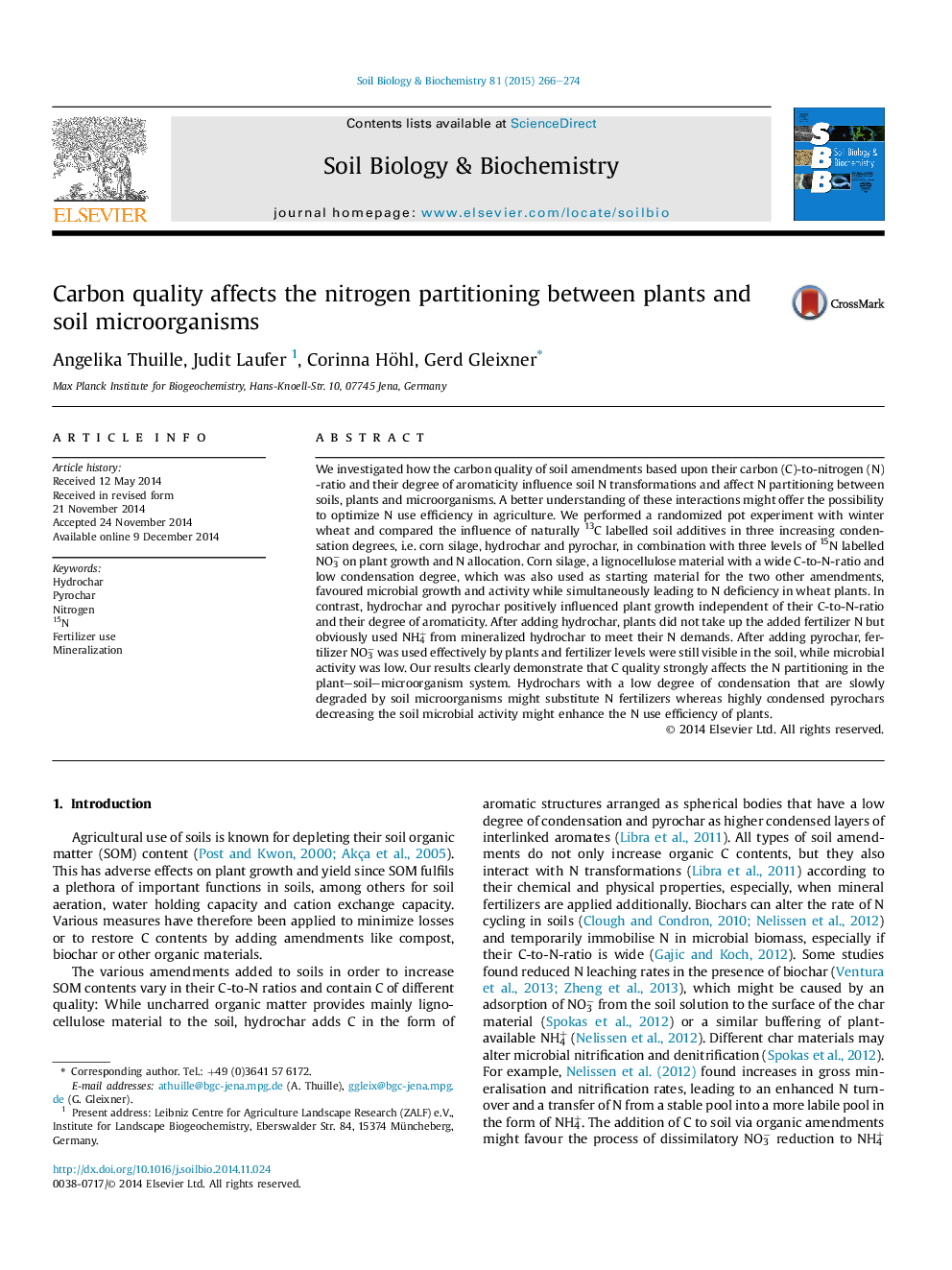| Article ID | Journal | Published Year | Pages | File Type |
|---|---|---|---|---|
| 2024438 | Soil Biology and Biochemistry | 2015 | 9 Pages |
•The carbon quality of soil amendments influences mineral nitrogen use.•Nitrogen partitioning between plants, microorganisms and losses is affected.•Lowly condensed carbon amendments favour microbial nitrate use and decomposition.•Highly condensed carbon amendments favour nitrate use of plants.•Amendments with intermediate condensation favour mineralization and denitrification.
We investigated how the carbon quality of soil amendments based upon their carbon (C)-to-nitrogen (N) -ratio and their degree of aromaticity influence soil N transformations and affect N partitioning between soils, plants and microorganisms. A better understanding of these interactions might offer the possibility to optimize N use efficiency in agriculture. We performed a randomized pot experiment with winter wheat and compared the influence of naturally 13C labelled soil additives in three increasing condensation degrees, i.e. corn silage, hydrochar and pyrochar, in combination with three levels of 15N labelled NO3− on plant growth and N allocation. Corn silage, a lignocellulose material with a wide C-to-N-ratio and low condensation degree, which was also used as starting material for the two other amendments, favoured microbial growth and activity while simultaneously leading to N deficiency in wheat plants. In contrast, hydrochar and pyrochar positively influenced plant growth independent of their C-to-N-ratio and their degree of aromaticity. After adding hydrochar, plants did not take up the added fertilizer N but obviously used NH4+ from mineralized hydrochar to meet their N demands. After adding pyrochar, fertilizer NO3− was used effectively by plants and fertilizer levels were still visible in the soil, while microbial activity was low. Our results clearly demonstrate that C quality strongly affects the N partitioning in the plant–soil–microorganism system. Hydrochars with a low degree of condensation that are slowly degraded by soil microorganisms might substitute N fertilizers whereas highly condensed pyrochars decreasing the soil microbial activity might enhance the N use efficiency of plants.
Graphical abstractFigure optionsDownload full-size imageDownload as PowerPoint slide
